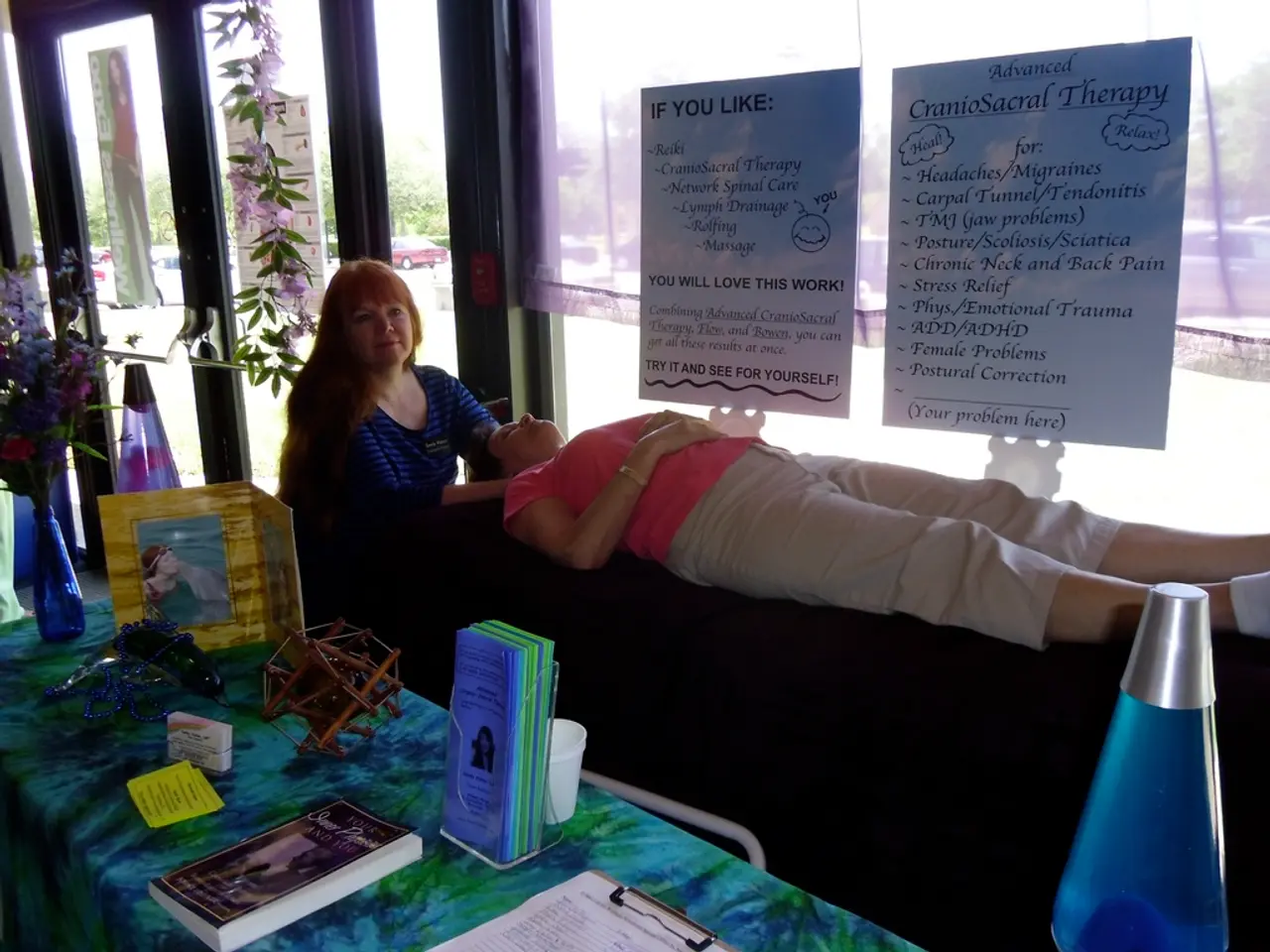Awareness of Mental Health: Fresh Insights and Approaches
In today's fast-paced world, taking care of our mental health is more important than ever. By incorporating meditation, mindfulness exercises, movement, and creative pursuits into our daily routine, we can have a profound impact on our mental well-being.
Self-reflection, connection, self-care, and professional help are four well-supported strategies for improving mental health.
Self-reflection can be achieved through mindful activities, creative pursuits like journaling or art, and positive self-talk. These practices help us explore our emotions, reduce stress, and build self-compassion.
Connection is essential for nurturing meaningful relationships and social wellness. Spending regular time with friends and family, engaging in supportive interactions, and cultivating strong social networks can reduce isolation and improve emotional resilience.
Self-care is about nurturing oneself through simple, daily practices. This includes mindfulness (meditation, yoga), maintaining sleep hygiene, eating healthily, exercising regularly, limiting screen time, setting boundaries, and gratitude exercises. These promote emotional well-being and reduce stress.
Professional help is also crucial. Seeking support from licensed mental health professionals can provide accessible, stigma-reducing care and tailored resources for stress management and mental wellness.
Journaling can clarify our feelings and reveal new strategies for coping with life's difficulties. Opening up to a professional can equip us with tools and strategies to tackle challenges. Each step towards self-discovery, nurturing connections, committing to self-care, or seeking professional aid brings us closer to better mental health.
Mental health is often perceived as an uphill battle, but the goal is to cultivate a society that prioritizes mental well-being, honours vulnerability, and nurtures personal growth. Attending local support groups, reaching out to mental health professionals, and joining online forums can forge connections.
Embracing mental health awareness is an ongoing journey of self-exploration and relationship building. Engaging in self-discovery requires giving ourselves permission to feel everything. Therapy is not only for crises, but also a valuable space for personal growth and self-discovery.
Discovering joy in simple moments is essential for nurturing a positive mindset. Isolation can be overwhelming when struggling with mental health, and human connection can provide healing. Reaching out to a therapist or counselor can be a courageous move, signifying strength and self-awareness.
Therapy can help individuals unravel their emotions and understand the patterns that shape their behavior. Seeking guidance from a qualified professional can help navigate the intricate layers of emotions, leading to clarity and empowerment.
For those seeking further learning, visiting an external website can provide additional information about these strategies and their effectiveness in enhancing overall mental health and resilience. Together, let's strive for a society that values mental health and supports personal growth.
- Self-reflection in photography, a creative medium, can offer a unique perspective on one's emotions, helping to reduce stress and foster self-compassion.
- Media, including fashion and beauty influencers, can play a vital role in promoting self-care practices, showcasing the importance of mental health in a relatable and accessible way.
- Health-and-wellness retreats often incorporate various therapies and treatments, such as mindfulness, meditation, and massage, to promote mental well-being and emotional resilience.
- Mental health professionals can offer evidence-based treatments and therapies, like cognitive-behavioral therapy and dialectical behavior therapy, to help individuals manage stress, improve their mental health, and build stronger coping skills.




